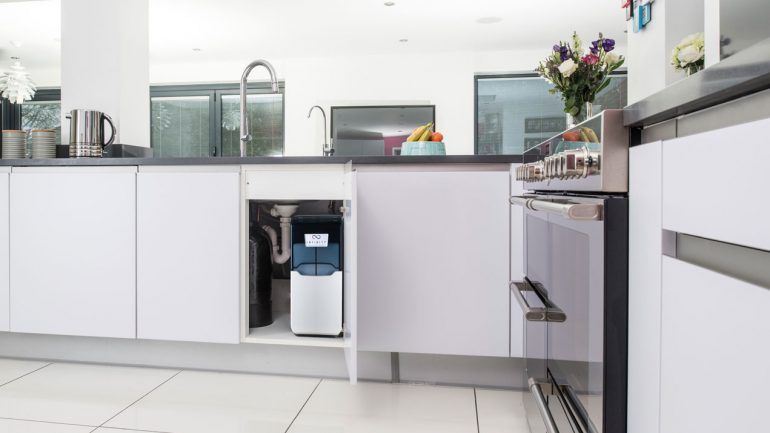Dorset is located in a particularly hard water area. Have you ever noticed limescale build up in your kettle, or unsightly scale and scum marks around your bathroom? These are just some of the visible effects of hard water in your home. Keith Martin, from Southern Softflow, tells us more about the problems that hard water can cause, and how a water softener can help protect your home.
What is Hard water?
When it rains, the water falling from the clouds is completely soft, but as water passes through the ground it begins to absorb minerals such as calcium and magnesium found within the earth and the water becomes “hard”. These minerals, whilst natural, create scale build up causing hard water damage throughout your home.
What does this mean for our homes?
Some of the effects of hard water are visible, but damage is also being done that you cannot see. Limescale build up will reduce the efficiency of your water heating system and will reduce the lifespan of the appliances in your home. This can result in costly replacements to showers, boilers and other appliances and will mean higher energy bills. Also, hard water does not create a lather with soap and cleaning products which means you will need to spend considerably more in your monthly shop.
How does a water softener work?
There are many types of water softener, but they all work on the same principle. Hard water enters your home through the mains supply and then flows in to a water softener. A water softener will contain a cylinder that is filled with resin that traps the calcium and magnesium minerals in the untreated water allowing softened water to continue around the rest of your home. We will normally leave your home with an untreated hard water supply for drinking water, if possible. When this resin becomes coated in calcium and magnesium, the softener will need to “regenerate”, essentially this means that the resin is cleaned so that is can continue to soften water. When and how this regeneration cycle occurs will depend on the type of water softener you have.
Will I notice the difference?
Our customers often say a water softener is one of the best purchases they’ve ever made. No more descaling kettles or scrubbing limescale from your shower screen, you will instantly notice the difference in the water that you bathe in. Hard water, when mixed with soap, forms scum that sits on top of your skin, leaving it feeling dry. Soft water will help keep your skin moist and can help to reduce the effects of eczema and psoriasis.
What type of water softener do you recommend?
We don’t recommend the cheapest and we certainly don’t recommend the most expensive. Whilst each home will be different, we often recommend a non-electric twin cylinder softener. This type of softener can use a second cylinder to soften your water whilst the other cylinder is regenerating, which guarantees soft water in your home 24/7. We have over 20 years’ experience and we find these to be the most efficient and reliable type of water softener. These softeners come with a 10 year warranty, although we have customers who still have their first softener from when we started 20 years ago!
How can I find out more?
More information can be found on our website or feel free to call the office. We recognise that each home is different, and therefore we look to arrange a free home survey in order to provide an accurate quotation. This survey is absolutely no-obligation and we will leave you to make up your mind in your own time. You can also find us on Checkatrade where we consistently score 10/10 from our happy customers.
CONTACT
Tel 01202 828241
Email info@southernsoftflow.co.uk



Leave a Reply